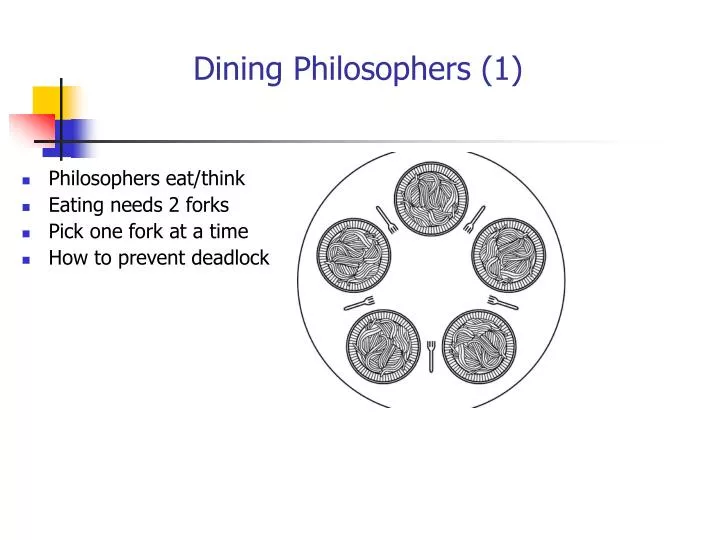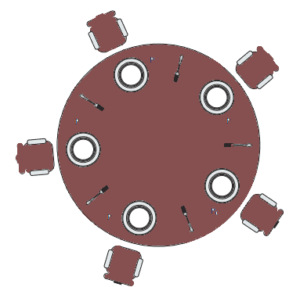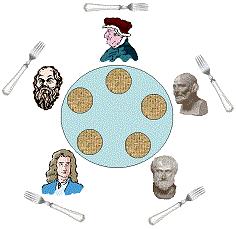
To this end, we can force on of the philosophers to act differently. If this circular waiting can be broken, deadlocks will go away. In our previous solution, the deadlock is caused by having every philosopher to pick up his left chopstick. I intended to implement it using Java threads. If two neighbors try to take one fork at the same time, only one of them succeeds and the other one waits.įrom a programmer’s perspective, each philosopher is a thread performing these actions in an infinite loop. Analysis It turns out that eliminating deadlock is not very difficult. Dining philosopher problem is one of the classic problems in computer science. If a philosopher wants to take a fork, but this fork is currently used by the neighbor, the philosopher waits until the neighbor puts the fork back before getting it. However, if any 2 philosophers sit next to each other, they share 1 fork as illustrated below, for n = 8 n = 8 n = 8.Įach philosopher behaves independently from other philosophers, but in accordance with the following scenario: Each plate has a fork to the left and to the right of it. simulation operating-system dining-philosophers Updated Java amitbd1508 / Dining-Philosopher-With-GUI Star 1. The dining philosophers problem is a well-known problem in computer science, originally formulated by Edsger Dijkstra to illustrate the possibility of deadlocks in programs where multiple threads lock and unlock multiple shared resources, such that a situation in which every thread is waiting for actions from other threads and no thread can thus.
#Dining philosophers problem java deadlock code
Language: All Sort: Most stars Showndarya / Operating-System-Algorithms Star 12 Code Issues Pull requests Process synchronization, Deadlock avoidance and Disk scheduling algorithms implemented in Java.

A hungry philosopher may only eat if there are both chopsticks available.Otherwise a philosopher puts down their chopstick and begin thinking again. dining-philosophers-problem Star Here are 111 public repositories matching this topic. Now, all five philosophers are waiting on a condition that cannot be satisfied-they are all waiting for the left chopstick which is held by the philosopher to their left.


A philosopher needs both their right and left chopstick to eat. Why Because, each philosopher immediately grabs the chopstick on his right. There is a bowl of rice for each of the philosophers and 5 chopsticks. The dining philosophers problem states that there are 5 philosophers sharing a circular table and they eat and think alternatively.


 0 kommentar(er)
0 kommentar(er)
